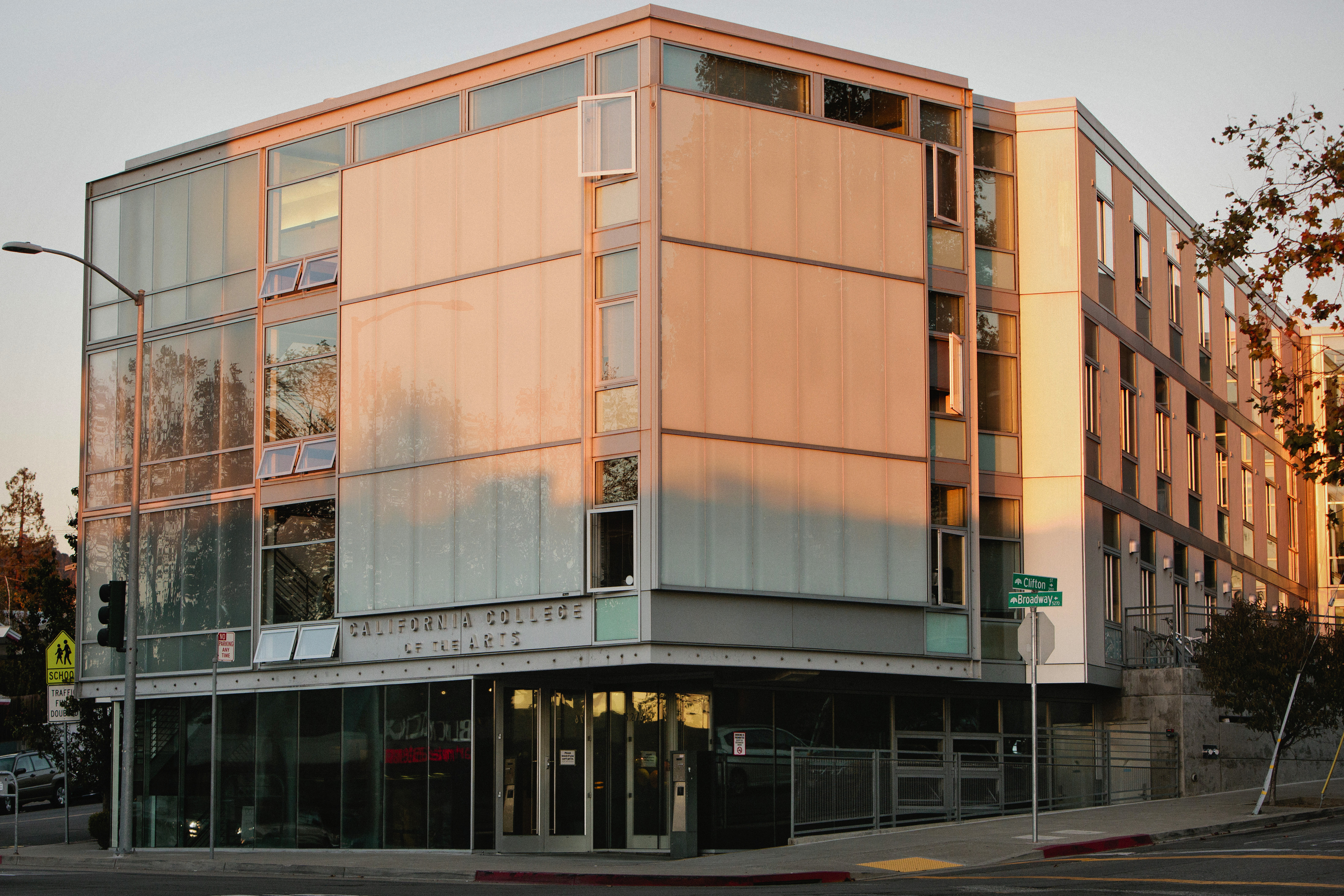Today, during a Special Meeting, the Oakland City Council provided the affirmative votes needed to help close a deal to purchase the California College of the Arts (CCA) Clifton Hall dormitory. The 63-unit building presents a singular opportunity to provide sustainable and transit-friendly deeply affordable housing for Oakland families and seniors.
The next steps in the process are to secure funding from the California State Homekey grant program, communicate with community stakeholders, and finalize property due diligence. As required by the Homekey Program, close of escrow would occur no later than December 30, 2020.
Provided all funding is secured, the City looks forward to this exciting legacy opportunity to provide housing for Oakland families and seniors.
“Transforming existing facilities into deeply affordable housing in a neighborhood rich with transit and other amenities signals an important trend that will keep more Oaklanders rooted in Oakland,” said Mayor Libby Schaaf. “I appreciate the City Council for moving this creative project forward and am hopeful that the State Homekey funds are secured so that we may continue creating legacy housing for those who need it most.”
Clifton Hall, a four-story, vacant dormitory building comprised of 63 units in the amenity rich Rockridge neighborhood of North Oakland, presents an exciting opportunity to provide needed short-term and long-term affordable housing.
On the top two floors of the building, Clifton Hall will provide 42 units of permanent housing for seniors experiencing homelessness and at high risk of contracting COVID-19. The second floor will become the permanent home for a 20-household family shelter. On the ground floor, the building will house the offices of Family Front Door, which serves as the hub for the Coordinated Entry System (CES) for homeless families in Northern Alameda County.
Occupancy will begin by moving the Family Matters Shelter from its temporary location in Emeryville to its permanent location in the Clifton Hall building. Approximately 10 families will move to the new space from its current location. Additional homeless families will quickly be referred from the family CES to ensure that the building reaches 50% occupancy - approximately 31 units - within 90 days of acquisition.
"During these challenging times, it is vitally important that we come together to take advantage of opportunities that arise to help our unhoused families and seniors move off the street into housing," said Oakland Councilmember Dan Kalb, who had been advocating that the dormitory be repurposed for affordable housing. "This tangible effort by the City is something to be proud of, and I thank all those who are helping to make this happen."
Homekey Program Facts
Target Population
The City will record a restriction against the property to limit its use to the following populations:
- Individuals and families experiencing homelessness and/or at risk of experiencing homelessness
- Individuals impacted by the COVID-19 pandemic
Both the shelter and the permanent housing uses will be regulated by the restriction, with a term no less than 55 years.
Operations and Service Funding
The City will solicit a housing operator to manage the permanent senior units, as well as oversee the entire building operations. As a match to the State Homekey request for two years of operating funds for the 42 permanent housing units, the City is prepared to capitalize up to 13 years of operating funds from its allocation of Homeless Housing, Assistance and Prevention (HHAP) funds. This allocation would cover 15 years of operations for the permanent units and ensure the property’s stability for the long term. During this period, the City will work with the operator to identify the best recapitalization strategy to ensure the property remains financially stable and maintained.
The operations and services for Family Matters Shelter will be funded by local Measure Q funds. The Family Matters Shelter and Family Front Door offices will be subleased to the housing operator.
Services
In addition to property management and maintenance staff, the permanent housing will be supported by a service coordinator to ensure that residents are connected to services and supported by available resources. Special emphasis will be made to provide connections to senior specific health and social services.
The family shelter, managed by East Oakland Community Project, will be staffed 24/7 with residential counselors. Additional staff includes, two housing navigators, an employment specialist, a program manager, food services coordinator/cook, two maintenance staff and a youth services coordinator.
The property will also house offices of the Family Front Door (FFD). The FFD serves as a hub in the North County Coordinated Entry System (CES) for homeless families. CES staff assesses the needs of homeless families and prioritizes them for assistance. All assessed families are placed on a list and as resources such as shelter become available, are matched to said resource. Beds at the Family Matters Shelter will be assigned through the process described above.
Clifton Hall Background:
Clifton Hall was built in 2002 by California College of the Arts (CCA) as a dormitory to house 126 students. In 2016 CCA finalized a strategic plan to unify its two campuses in San Francisco, since the Oakland property it has occupied since 1922 no longer has the capacity to accommodate all CCA’s programs, students and faculty.
CCA President Stephen Beal said, “Throughout its transition process, CCA has been committed to finding future uses of the historic Oakland campus and seeking partners who will honor CCA’s legacy of innovative learning through making, which is rooted in social activism and community engagement. We are pleased that the City will be able to make Clifton Hall available to Oakland families and seniors in need of affordable housing.”
# # #
